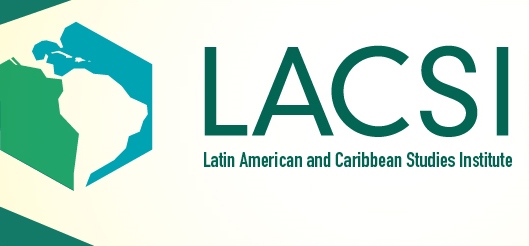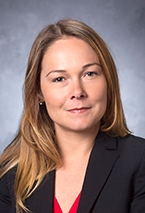
Davis Wright is a recent graduate of the University of Georgia School of Law (JD magna cum laude 2022). During his time in law school, Davis was: Executive Articles Editor for Vol. 50 of the Georgia Journal of International & Comparative Law; co-founder and co-president of the Privacy, Security, and Technology Law Society; and participant in the 2021 Philip C. Jessup International Law Moot Court Competition. Additionally, he completed a semester-long externship in Norfolk, Virginia, in the legal department of HQ SACT, a leading unit of the North Atlantic Treaty Organization; his prior post on that NATO experience is here. This month, Davis will begin practicing law as an Associate at Jones Day in Atlanta. He would like to thank Georgia Law’s Dean Rusk International Law Center for contributing funding to allow him to fly to Washington, D.C., in order to participate as a nongovernmental organization (NGO) observer in Guantánamo Bay, Cuba – an experience that he recounts in this post.
From September 9 to 16, 2022, I was granted the opportunity to be the National Institute of Military Justice NGO Observer at the U.S. Military Commission hearings at Naval Station Guantanamo Bay (NSGB) in Guantánamo Bay, Cuba, in the case against the defendant known as Abd al-Hadi al-Iraqi, although he calls himself Nashwan al-Tamir.
During my time in Guantanamo, I found stark contrasts everywhere: internally, with how I viewed Mr. al-Hadi’s treatment, and externally, with all that I observed on NSGB.
Guantánamo Bay is a beautiful place. Flying into the airstrip of NSGB, you can see the stunning landscape of Cuba, with many mountains jutting out from the island.
After crossing the bay via ferry, surveying the views on water, I arrived at the area of the base that includes Camp Justice, the makeshift complex where the military commissions are held.
After completing check-in, passing through security, and being instructed on what I could and could not do while on base, I was given a tour of the base by my escort.
This was where I noticed the first contrast:
- Initially, I was shown rocky beaches with clear blue water, breathtaking lookouts with 360-degree views, and lively wildlife that was all around, including iguanas, banana rats, deer, and guinea fowl.
- But then I also was able to view Camp X-Ray, the hastily thrown together detention facility that housed the first of captives held at Guantánamo Bay in the United States’ war on terror. In this facility, and then in the more permanent Camp Delta afterwards, detainees were (and still are) held without charges, and many allege that they were tortured and abused. X-Ray is now unused and run down, poking out through the overgrown foliage that threatens to swallow it. Nevertheless, it casts a dark shadow and eerie presence over the otherwise idyllic landscape.
The next day, we were shown all that Guantánamo Bay has to offer. There are the aforementioned beaches, a bowling alley, an arcade, an Irish pub, a tiki bar, basketball, racquetball, and pickleball courts, mini-golf, and much more. And I took advantage, by eating, drinking, and enjoying myself on an island that displayed beauty everywhere I looked.
This was the next contrast.
Because while I had just enjoyed what was essentially a day of vacation on a Sunday in Guantánamo Bay, the next morning, behind layers of security, I was observing a U.S. Military Commission hearing for Mr. al-Hadi.
The pre-sentencing hearing that day focused on Mr. al-Hadi’s failing health. Mr. al-Hadi has previously endured 5 spine surgeries, due to a degenerative-spine disease. He needs a sixth. However, an MRI machine is needed to evaluate his spine, and the only one to which he has access at Guantánamo Bay has been broken since November 2021. Although the previous MRI machine had been provided via an awarded contract to a private company, the government failed to contract for maintenance, and, as a result, the machine demagnetized due to a catastrophic loss of helium. Mr. al-Hadi also needs a dexa scan, and the base does not have this capability.
The government has provided an estimate of December 2022 for the operability of a new MRI machine and download of software to the existing CT scan machine to make a dexa scan possible. However, the previous (and now broken) MRI machine took several years to finally make its way to the base and become operational. Due to this, the defense counsel expressed deep skepticism over whether the government’s timeline was realistic. Counsel asked to take the testimony of the Senior Medical Officer – the equivalent of Mr. al-Hadi’s primary care physician – to inquire into his current health situation. Defense counsel also asked to take the testimony of the chair of the Senior Medical Advising Committee, arguing that this individual likely has information regarding the procurement and administration of the MRI machine.
Who, exactly, is this defendant?
Mr. al-Hadi was captured in Turkey in late 2006 and held at a CIA black site for 5 to 6 months. After this time, he was transferred to the detention facility at NSGB. As described in an article by New York Times reporter Carol Rosenberg, this past June Mr. al-Hadi pleaded guilty to the “war crimes of attacking private property – a U.S. military medevac helicopter that insurgents who answered to him failed to shoot down in Afghanistan in 2003 – and of treachery and conspiracy connected to insurgent bombings that killed at least three allied troops, one each from Canada, Britain and Germany.” Many of his fellow detainees are accused of other war crimes; they include Abd al-Rahim al-Nashiri, who allegedly orchestrated the attacks on the USS Cole, and Khalid Shaikh Mohammed, who is alleged to have been one of the masterminds behind the 9/11 attacks.
This is yet another contrast.
It is hard to feel sympathetic for the detainees, including Mr. al-Hadi, because most have legitimately committed heinous crimes against the United States. Yet – unlike others who have also committed heinous crimes but were convicted in U.S. courts – detainees at Guantánamo Bay were held for lengthy periods of time without charges. Many detainees allege that they were tortured either before coming to or during their time on base. These men are also aging and facing increasing health problems, which the government, to date, has inadequately addressed. It is easy to want to ignore these injustices when faced with the war crimes that were committed by those held in Guantanamo Bay. But as Dr. Martin Luther King Jr. said: “Injustice anywhere is a threat to justice everywhere.” And although that quote may be cliché, the United States (and those keeping it accountable) must fight to the urge to allow the crimes of the accused to determine the quality of the legal process they receive.
After the Monday hearing, Tuesday was a classified session, which NGO observers were prohibited from attending, presumably because the judge granted one or both of the defense counsel’s motions for new testimony. And the Wednesday through Friday hearings were either cancelled or classified as well.
This led to the final contrast that I observed. While I got a few more days of relaxing in the sun on the government’s dime, I was flown down to Guantanamo Bay on a charter flight, housed, and provided an escort all for no cost, it remains to be seen whether Mr. al-Hadi ever gets his MRI and dexa scan from that same government.



 Caribbean Studies Institute
Caribbean Studies Institute sponsored by the Dean Rusk International Law Center, the panel will also feature professors from several departments at the University of Georgia, including:
sponsored by the Dean Rusk International Law Center, the panel will also feature professors from several departments at the University of Georgia, including:  Román
Román
 civil rights abuses (about which I’ve written,
civil rights abuses (about which I’ve written, 
 We’re honored that the Georgia Law alumnus leading that project, Geneva-based ICRC legal adviser
We’re honored that the Georgia Law alumnus leading that project, Geneva-based ICRC legal adviser  Dr. Henckaerts will be part of a public panel from 9:15 a.m.-12 noon in Georgia Law’s Hatton Lovejoy
Dr. Henckaerts will be part of a public panel from 9:15 a.m.-12 noon in Georgia Law’s Hatton Lovejoy  Courtroom. Speaking in that morning session will be: Oxford Law Professor
Courtroom. Speaking in that morning session will be: Oxford Law Professor  moderator
moderator  Amann
Amann Armed Conflict.
Armed Conflict. Featured yesterday at CNN: a Georgia Law grad whose public service has spanned the globe.
Featured yesterday at CNN: a Georgia Law grad whose public service has spanned the globe.